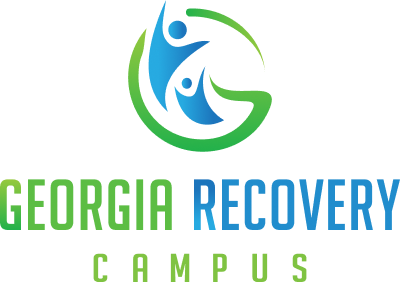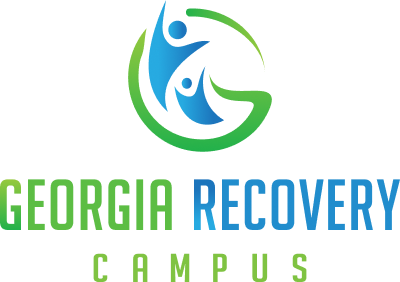Why Hydration Matters More Than You Think During Detox
Starting the path to recovery is tough enough. But your body’s not just healing emotionally—it's working overtime to flush out what it no longer needs. And the unsung hero of this entire process? Water.
That’s right. Something as simple as staying hydrated can make a huge difference during detox. It’s not just about quenching thirst. Hydration helps your body function, supports your mind, and keeps withdrawal symptoms from hitting harder than they have to.
Let’s break it down.
Fueling Your Body’s Detox Engine
Water powers the body’s cleanup crew—your liver, kidneys, and metabolism. When you’re detoxing, those systems are in overdrive. Hydration helps them do their jobs without burning out.
Without enough fluids, enzymes slow down. That means toxins stay in your system longer. By drinking water consistently, you're helping your body process and push out substances more effectively.
Giving Your Organs a Fighting Chance
Your liver and kidneys don’t get nearly enough credit. During a medical detox, they’re your frontline defenders. And they need water to work properly.
Hydration helps the liver break down drugs and filters everything through the kidneys for removal. If you’re dehydrated, these organs have to work harder—putting you at risk for complications and slowing recovery.
Keeping Your Electrolytes in Check
Detox can mess with your electrolyte levels. When that happens, you might feel dizzy, weak, or get muscle cramps. Water alone sometimes isn’t enough—your body might need electrolyte-rich drinks like broths, coconut water, or special hydration solutions.
Getting the right balance keeps your muscles moving, your heart beating steadily, and your body calm during a tough process.
What Happens When You’re Dehydrated in Detox?
Foggy Thinking and Mood Swings
Dehydration doesn’t just hit the body—it messes with the brain too. When you’re low on fluids, you’re more likely to feel confused, irritable, and emotionally unstable. You may already be feeling that way from withdrawal, but dehydration can amplify it fast.
Staying hydrated helps regulate your mood and keeps your mind clearer—even when the road ahead feels rough.
Fatigue and Burnout
Detox is physically draining. Add dehydration to the mix, and your energy levels tank even faster. Your body has to work harder just to keep going.
Drinking enough fluids helps keep your stamina up—so you’re not running on empty while trying to do the hard work of recovery.
Heart Strain You Don’t Need
Dehydration can make your heart beat faster and harder than it should. That adds stress your body really doesn’t need right now. Staying hydrated supports healthy blood pressure and circulation—things that become especially important during detox.
Staying Ahead of the Curve with Smart Hydration
Personalize Your Plan
Not everyone needs the same amount of water. Age, body weight, and detox intensity all play a role. Some people need more fluids than others, especially in hot weather or during intense withdrawal periods.
That’s why working with your care team to create a hydration plan that works for you—not just a one-size-fits-all suggestion—is a smart move.
Go Beyond Water
Yes, water is essential. But it’s not the only option. Try adding in electrolyte drinks, herbal teas, soups, or even water-rich fruits and veggies.
These alternatives keep hydration interesting, give you a nutritional boost, and help your body rebalance more effectively.
Listen to Your Body
Pay attention to your urine color, thirst, energy levels, and even dry skin. They’re all signs of how your hydration is going. The sooner you respond to early dehydration signs, the smoother your recovery can be.
The Mental Boost You Didn’t Expect
More Clarity, Less Fog
Water fuels brain function. Simple as that. The more hydrated you are, the better your focus and emotional regulation—two things you’ll need every day of your recovery.
Calm the Chaos
Water helps reduce stress hormones and regulate your nervous system. It’s a natural way to take the edge off anxiety, tension, and racing thoughts.
Sleep You Can Actually Count On
Better hydration leads to deeper sleep. And in detox, sleep is healing. It’s when your brain resets and your body recharges. Don’t let dehydration rob you of that essential rest.
Clearing Up the Myths
Yes, You Can Drink Too Much—But It’s Rare
Water intoxication is real, but it’s rare. You’d have to drink extreme amounts in a short time. A well-structured plan from your care team keeps you safe without overdoing it.
Not All Bodies Need the Same
Forget the eight-glasses-a-day rule. What your body needs depends on your size, symptoms, and situation. Personalizing your hydration plan ensures you’re not over or under-doing it.
Water Isn’t the Only Way
Soups. Fruits. Coconut water. Herbal teas. All count. If water feels boring or hard to keep down, these options still hydrate—and help you stay on track.
Detox Starts with Support
Hydration alone won’t carry you through detox—but it’s a huge piece of the puzzle. If you or someone you love is starting the journey, make sure the basics—like water—aren’t overlooked.
At Georgia Recovery Campus, we pay attention to every detail in addiction recovery. We know that lasting recovery takes more than willpower. It takes informed care, tailored programs, and a team that sees the full picture.
Call (478) 216-1110 today to learn how we support detox the right way—one step, one sip, one day at a time.



.2508071634121.jpg)

.2508071623543.jpg)
.2506161820057.jpg)
.2502241135023.jpg)